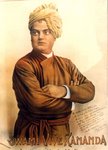The Pencil Maker took the pencil aside, just before
putting him into the box. “There are 5 things you need to know,” he told the
pencil, “Before I send you out into the world. Always remember them and never
forget, and you will become the best pencil you can be.”
One: “You will be able to do many great things, but only
if you allow yourself to be held in someone’s hand.”
Two: “You will experience a painful sharpening from time
to time, but you’ll need it to become a better pencil.”
Three: “You will be able to correct any mistakes you
might make.”
Four: “The most important part of you will always be
what's inside.”
And Five: “On every surface you are used on, you must
leave your mark. No matter what the condition, you must continue to write.”
The pencil understood and promised to remember, and went
into the box with purpose in its heart. Now replacing the place of the pencil
with you. Always remember them and never forget, and you will become the best person you can be.
One: “You will be able to do many great things, but only
if you allow yourself to be held in God’s hand. And allow other human beings to
access you for the many gifts you possess.”
Two: “You will experience a painful sharpening from time
to time, by going through various problems in life, but you’ll need it to
become a stronger person.”
Three: “You will be able to correct any mistakes you
might make.”
Four: “The most important part of you will always be
what’s on the inside.”
And Five: “On every surface you walk through, you must
leave your mark. No matter what the situation, you must continue to do your
duties.”
Allow this parable on the pencil to encourage you to
know that you are a special person and only you can fulfill the purpose to
which you were born to accomplish.
Never allow yourself to get discouraged and think that your life is insignificant and cannot make a change.




